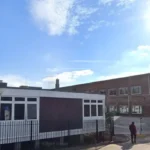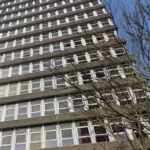Key Points
- Redbridge Council’s Trading Standards Team, with National Trading Standards support, shut down a counterfeit electronics business selling dangerous laptop chargers worth around £750,000.
- Two brothers, Mohammed Rafi Khan and Liaqat Khan, identified as central figures; Mohammed Rafi Khan sentenced at Snaresbrook Crown Court.
- Mohammed Rafi Khan found guilty of fraud and offences under Electrical Equipment (Safety) Regulations 2016; given a two-year suspended sentence, 100 hours unpaid community work, and fined £2,450.
- The investigation began after a Brent resident with electrical safety expertise reported suspicious laptop chargers bought via eBay from Ascot Direct Ltd, Ilford.
- Hundreds of counterfeit laptop chargers falsely branded as Dell, Hewlett Packard, Samsung, and Toshiba were listed on eBay.
- Two shipping containers with 30,000 unbranded laptop chargers and thousands of counterfeit brand labels found in a Dagenham storage unit.
- Financial records linking nearly £110,000 in payments to Chinese suppliers from a bank account of Mohammed Rafi Khan.
- Warrants executed on 25 May 2021 at two properties in Ilford and Romford.
- Safety tests confirmed 48 out of 50 samples posed serious electric shock and fire risks.
- Liaqat Khan arrested but later fled the country; a warrant issued for his arrest.
- Both brothers and Ascot Direct Ltd charged under Trade Marks Act 1994, Fraud Act 2006, and Electrical Equipment (Safety) Regulations 2016.
- Statements from Cllr Khayer Chowdhury and Trish Burls highlighted the serious risks and commended enforcement efforts.
What happened in the Redbridge counterfeit electronics operation?
As reported by Redbridge Council on 8 September 2025, the Council’s Trading Standards Team, supported by National Trading Standards, successfully dismantled a large-scale counterfeit electronics business selling dangerous laptop chargers worth approximately £750,000. The team targeted Ascot Direct Ltd, an Ilford-registered company under the sole directorship of Liaqat Khan, involved in selling fake laptop chargers via eBay. The operation involved hundreds of listings falsely branded as major electronics companies such as Dell, Hewlett Packard, Samsung, and Toshiba.
- Key Points
- What happened in the Redbridge counterfeit electronics operation?
- Who were the key individuals involved in the counterfeit operation?
- How extensive was the counterfeit operation?
- What were the safety concerns related to the counterfeit chargers?
- What legal charges were brought against the individuals and company involved?
- What statements have officials made regarding the case?
- How does this case reflect broader issues in counterfeit electronics?
- What is being done to combat counterfeit electronics nationally?
The investigation was triggered when a Brent resident with electrical safety expertise purchased a replacement laptop charger on eBay and identified serious safety risks. This complaint led Trading Standards to launch a multi-agency investigation uncovering the counterfeit operation.
Who were the key individuals involved in the counterfeit operation?
Investigators identified two brothers, Mohammed Rafi Khan and Liaqat Khan, as key figures in the operation. Mohammed Rafi Khan, 36, residing in Romford, was found guilty of two counts of fraud and offences under the Electrical Equipment (Safety) Regulations 2016 at Snaresbrook Crown Court after a trial held between 30 June and 4 July 2025. He received a two-year suspended prison sentence, ordered to carry out 100 hours of unpaid community service, and pay £2,450 costs. A Deprivation Order was issued for the seized counterfeit goods.
Liaqat Khan, 28, residing on Belmont Road, Ilford, was arrested during the search but declined to comment. Later, he failed to respond to a court summons and Border Force confirmed he had left the country. A warrant for his arrest has been issued.
How extensive was the counterfeit operation?
Searches executed on 25 May 2021 at the brothers’ residences and related storage sites uncovered two shipping containers in Reef Street, Dagenham, stocked with 30,000 unbranded laptop chargers and thousands of counterfeit brand labels. The financial investigation traced nearly £110,000 in payments from bank accounts linked to Mohammed Rafi Khan to Chinese suppliers suspected of providing counterfeit chargers and plugs.
Further seizures from the Ilford property included bank statements and mail sacks of returned goods, evidencing the scale and organisation of the illegal operation.
What were the safety concerns related to the counterfeit chargers?
Safety testing funded by the Office for Product Safety and Standards (OPSS) tested 50 samples of the counterfeit laptop chargers. Alarmingly, 48 samples were found to pose serious safety risks, including the potential for electric shocks and fire hazards. This testing and public safety risk assessment underline the dangerous nature of the counterfeit products sold to unsuspecting consumers.
What legal charges were brought against the individuals and company involved?
Both brothers, Mohammed Rafi Khan and Liaqat Khan, along with Ascot Direct Ltd, were charged under multiple laws including the Trade Marks Act 1994, the Fraud Act 2006, and the Electrical Equipment (Safety) Regulations 2016. The charges reflect the dual nature of their offences: selling counterfeit goods infringing brand trademarks and violating safety regulations putting public safety at risk.
What statements have officials made regarding the case?
Cllr Khayer Chowdhury, Cabinet Member for Enforcement and Community Safety, emphasised the serious risks posed by counterfeit electrical goods:
“This case highlights the serious risks posed by counterfeit electrical goods and the importance of robust enforcement. These products weren’t just fake — they were dangerous, with the potential to cause electric shocks, fires, and serious harm to unsuspecting consumers…. I want to commend our Trading Standards team for their tireless work and collaboration with national partners to bring this operation to justice. Their efforts have helped protect residents not just in Redbridge, but across the country. We remain committed to cracking down on illegal trading practices and ensuring that consumer safety is never compromised. Let this serve as a clear warning: if you put lives at risk for profit, we will find you, and we will hold you accountable.” [Redbridge Council]
Trish Burls, Chair of the National Trading Standards (NTS) Tri-Regional Investigation Team, added:
“Since June 2021, our investigators have supported the London Borough of Redbridge in a significant investigation into the large-scale supply and sale of counterfeit electrical items, such as laptop chargers, which failed to comply with safety regulations. These items were predominantly sold via eBay to unsuspecting members of the public. We hope today’s sentencing sends a clear message that such behaviour will not be tolerated.” [Redbridge Council]
How does this case reflect broader issues in counterfeit electronics?
This case in Redbridge mirrors ongoing concerns globally about the risks of counterfeit electronics, a problem widely recognised in sectors ranging from consumer electronics to industrial and medical devices. Counterfeit products often bypass safety standards, putting consumers at risk of injury or worse.
Industry experts have noted increasingly sophisticated methods by counterfeiters, including the production of counterfeit chargers and components that closely mimic genuine products but lack safety compliance, leading to elevated hazards such as fire and electric shock.
What is being done to combat counterfeit electronics nationally?
The Redbridge Council operation was supported by the National Trading Standards Tri-Region Investigation Team and Office for Product Safety and Standards, demonstrating robust multi-agency cooperation to tackle illegal sales and protect consumers. This case serves as a warning and precedent showing authorities’ commitment to enforcing laws relating to trade marks, fraud, and product safety, particularly for consumer electronics like laptop chargers widely used by the public.



